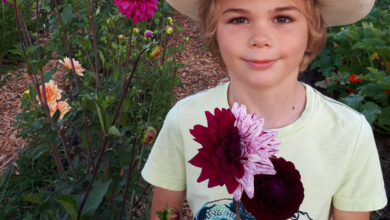Teams from eight biotech startups part of 2024 Health Innovation Accelerator cohort

In late February, UC Berkeley School of Public Health welcomed the fourth Health Innovation Accelerator cohort; eight health-related technology startups were selected to participate in the program as part of an ongoing partnership with the National Development Council in Taiwan.
The Health Innovation Accelerator connects participating startup teams with health systems leaders, executives at life sciences companies, experts in regulatory and reimbursement strategies, successful entrepreneurs, life science investors, and other resources to promote the teams’ long-term success.
The teams receive training from coaches with extensive experience in the life sciences sector and can take advantage of events and programs that will help them hone their product and business plans through UC Berkeley’s innovation and entrepreneurship resources.
“The health innovation accelerator represents a continuation of Berkeley Public Health’s efforts to drive collaboration between academia and industry, especially across the United States and Asia,” said Jared Mazzanti, director of strategic initiatives at Berkeley Public Health. “Our Healthcare Conference Taipei 2024, hosted with J.P. Morgan and partners at Stanford, highlighted the region’s incredible dynamism and the many opportunities to support new ideas and technology that improve
This year’s startup teams focus on topics from preventing in vitro fertilization (IVF) failure through sperm sorting to combatting painful cancer treatment side effects to enhancing cancer diagnosis.
Dr. Travis Yang joined the current cohort as part of the team from Neurobit, which has developed a system wearable technology that helps physicians identify the root cause of vertigo, which can signify a serious neurologic disorder or a minor ear issue.
Yang says that his participation in the program has strengthened his belief in the importance of collaboration in addressing global health challenges. “Working alongside experts and institutions from both Berkeley and Taiwan has broadened our perspectives and enriched our understanding of public health issues,” Yang said.
“The Accelerator Program appealed to our team for several reasons. … The program’s focus on addressing global health challenges aligns closely with our mission to develop innovative solutions for improving healthcare outcomes. By participating in the accelerator program, we gain access to mentorship, resources, and networks that can help us scale our solutions and make a meaningful impact on a global scale,” he said. “When we return to Taiwan, we hope to leverage the mentorship, resources, and networks established during the program.”
Yi-An Cheng of PrecisemAb, a startup focused on antibody therapy, joined the program to gain insights on the U.S. Food and Drug Administration’s Investigational New Drug application.
“We need to understand the suitable strategies for our products in clinical settings in the US to facilitate the design of our clinical trials,” she said.
She has already found advice her team has received as part of the program extremely valuable. “We will use the clinical trial suggestions received here to modify our current product settings to better align with market demands,” Cheng said.
Other startups in the current cohort include JelloX, Marker Exploration Corporation, Moleculex, Molsentech, iPreg, and MangaX . Previous teams in the health innovation accelerator have gone on to win competitions including SelectUSA, run by the U.S. Department of Commerce, and Meet the Drapers—an entrepreneur-focused television show—and have built partnerships with Berkeley Public Health faculty to address public health challenges like tuberculosis detection.
Read about the 2021 cohort, the 2022 cohort, and the 2023 cohort.



